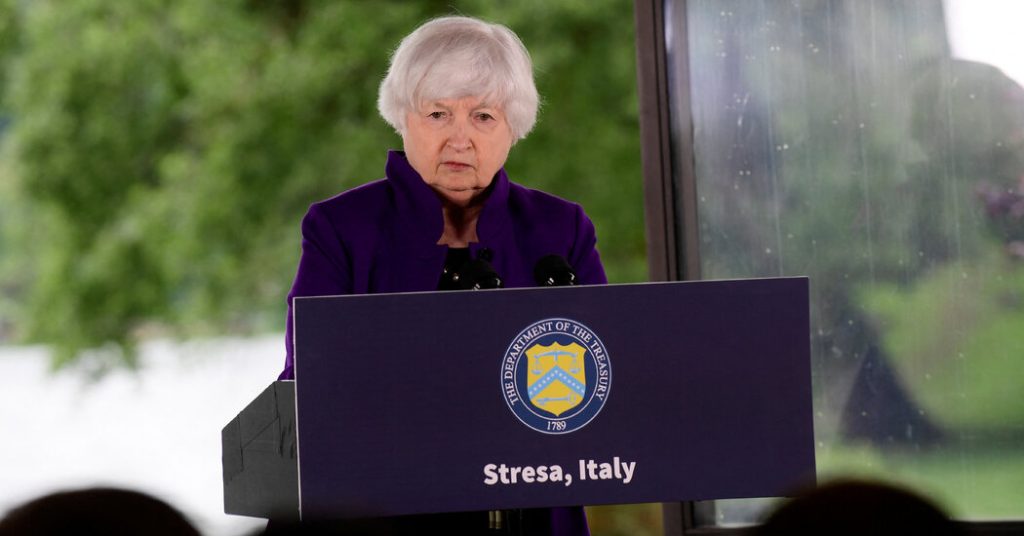Top finance officials from the world’s advanced economies met in Stresa, Italy, and discussed using Russia’s frozen central bank assets to aid Ukraine and united against China’s dumping of cheap exports. The Group of 7 aims to tackle global crises by leveraging their economic power, potentially deepening the divide between the wealthy Western economies and Russia, China, and their allies. This renewed push by rich countries reflects a determination to test the limits of their combined economic might in influencing Russia and China.
The finance ministers agreed on a joint statement or communiqué supporting efforts to redirect the profits from Russia’s immobilized assets to benefit Ukraine. They expressed concerns over China’s nonmarket policies, committing to monitor the negative effects of Chinese overcapacity and considering steps to ensure fair competition. The three-day meetings revolved around discussions on how to unlock $300 billion in frozen Russian assets to provide long-term aid to Ukraine, with a proposal for a $50 billion loan backed by some G7 countries gaining momentum.
As the urgency to reach an agreement intensifies due to waning international support for Ukraine and upcoming global elections, policymakers are working through details on how to share risks associated with the loan and address uncertainties related to the European Union sanctions on Russian assets. The G7 leaders aim to finalize their decision on the proposed loan structure when they convene next month in Italy. Amidst fears of China’s excess industrial capacity threatening the clean energy sectors in the US and Europe, President Biden increased tariffs on Chinese imports and urged the G7 to confront China’s trade practices.
European nations are pursuing their own investigations into China’s trade practices and considering potential tariffs, though differences in approach and concerns about the impact on their economies are evident. Russia and China are preparing responses to the G7’s actions, with Russia warning of retaliation against the European Union for using its assets to support Ukraine, while China considers temporary tariff increases on car imports in response to new US tariffs. Despite Russia’s threats of seizing US property, financial officials remain committed to supporting Ukraine and believe their actions are lawful and justified.
The finance ministers recognize the uncertainty of the proposed policies in changing Russia and China’s behavior but agree on the importance of presenting a united front. The G7’s renewed unity amidst challenges from Russia’s aggression in Ukraine and China’s authoritarianism and economic issues underscores the stakeholders’ determination to address global crises collectively. The collaboration between the world’s advanced economies in utilizing economic leverage to address geopolitical conflicts and trade tensions signals a shift towards more concerted efforts to assert their economic influence on the global stage.


